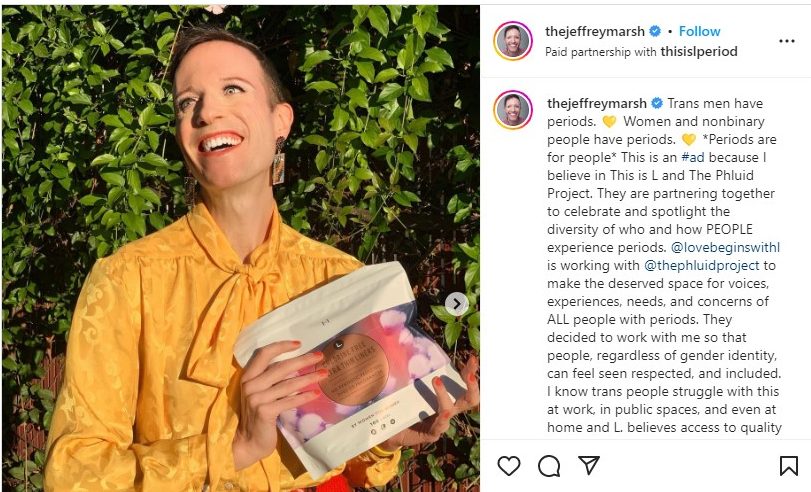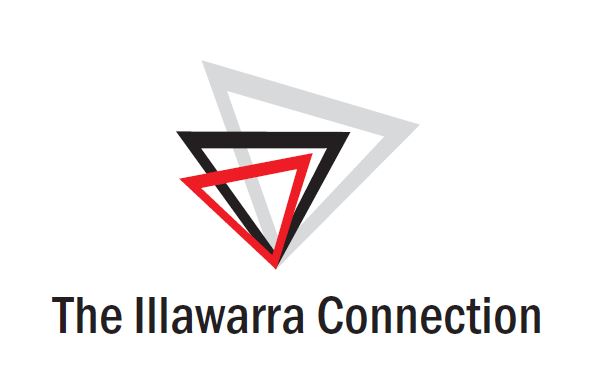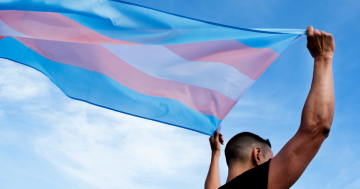
Transwoman Jeffrey Marsh was a brand spokesperson for sanitary products. Image: Instagram.
Being a feminist, progressive, small ‘l’ liberal is rarely without its moral quandaries, but the past few months have been especially challenging when it comes to gender politics.
On social media, in the news, and in conversations with like-minded friends, everyone is talking about the same thing: whether or not trans women’s rights are eroding the reality and identities of cis women.
It’s a complicated space to engage in, especially if you’ve always been an ally to trans and gender-diverse people. Everywhere I look, women speaking out about their own feelings around these issues are accused of being transphobic – even writing this now feels a little dangerous.
The trigger for a lot of the debate is the re-emergence of a story from last year when a tampon company sponsored a non-binary influencer, Jeffrey Marsh, as a paid ambassador for their product.
Marsh does not menstruate, and the move frustrated many cis women. I can understand why.
I assume the community-minded company felt they were doing something politically progressive by sponsoring Marsh – celebrating gender diversity and being an ally to LGBTQIA+ communities. But the fact remains that tampons are products used by cis women and non-binary and trans people who menstruate.
By sponsoring Marsh, in my opinion, the company was just virtue signalling for clout, and in the process, frustrating their actual customers who felt alienated by being told about their experiences of menstruating by someone who has never been through it themselves. If they had sponsored a trans or non-binary person who actually used tampons, I would have had no issue whatsoever.
Now, if you feel this is trivial, I get that. Personally, I don’t care who brands sponsor for what because advertising doesn’t influence my decision-making very much, and I choose my brand of sanitary product based on what works for me.
However, having existed in the world as a woman and endured societal revulsion towards our bodies, and menstruation in particular, it does feel a little weird to me that we’ve gone from the old ‘blue liquid instead of blood’ advertising of the past to just cutting out uteruses all together and not featuring a menstruating person at all.
But more importantly, the backlash and the backlash-to-the-backlash say something meaningful about ‘allyship’.
As the conversations about the tampon ad have evolved, cis women have also pointed out that many don’t want to have to give up gendered terms like breastfeeding for ‘chestfeeding’ or women for ‘womb carriers’ (I’m not making this up, these are genuinely being considered and touted by medical institutions in the US and the UK). There is no resistance to non-binary or trans women using gender-neutral or inclusive terms, but cis women equally want to reserve the right to use gendered terms when referring to themselves.
This seems uncomplicated to me. Everyone should have the right to be referred to in the way that matches their identity. Medical staff should be able to simply ask if there are preferences and use them accordingly. Gender-neutral language can be the default to avoid misgendering people and adjust based on the individual patients’ needs. Supporting trans and non-binary rights doesn’t have to be to the erasure of cis women’s experiences.
Yet, Marsh and other activists of their ilk have pushed back against women who raise this point, saying we’re inherently transphobic and gatekeeping womanhood.
Here’s how I see it: cis women have been trans allies throughout history. Feminists of all genders have driven support for and stood with trans people in recognising how gender equality can only exist if all gender identities are acknowledged and treated as equally valid.
But allyship should go both ways. Just as cis women are adjusting and understanding that there are experiences of gender outside of the binary, so should trans women appreciate that their experience of womanhood is not the same and can’t ever be the same as cis women’s. That doesn’t mean it’s less valid or authentic – it’s just inherently different. That isn’t transphobic – that’s an acknowledgement of fact. It shouldn’t have any bearing on the ability and rights of trans women to access medical care, resources, to be treated with respect and dignity, and to be able to live in the world as the women they are.
Unfortunately, the way these conversations unfold online rarely leaves space for nuance and only deals in absolutes – with us or against us, always in agreement or else transphobic. Even trans people who have spoken out against Marsh’s sponsorship or supported cis women’s reactions to losing all gendered language have been called transphobic.
Undoubtedly, I’ll be criticised on those lines too, so let me state clearly that I am 100 per cent in support of the right for every person to live authentically as the gender they identify with, and I specifically 100 per cent support trans, non-binary and gender diverse people to access the resources and services they need to do so.
I’ll always stand up for and with trans women and gender-diverse people, and equally for cis women and men wherever there is discrimination or injustice. I hope we can see the conversation shift to empathy and understanding on all sides.
Original Article published by Zoya Patel on Riotact.


















